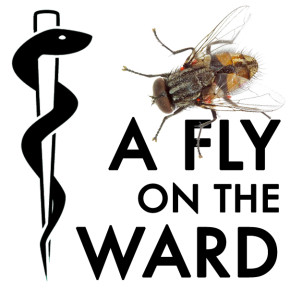 Let me start off by saying that I don’t think of myself as a hardcore cyclist: I don’t own multiple bikes, I am not on Strava, and I don’t own a single cycling kit or jersey. In fact, outside of my commute to the hospitals, errand runs and trips to friends’ places, I don’t really ride my bike.
Let me start off by saying that I don’t think of myself as a hardcore cyclist: I don’t own multiple bikes, I am not on Strava, and I don’t own a single cycling kit or jersey. In fact, outside of my commute to the hospitals, errand runs and trips to friends’ places, I don’t really ride my bike.
I started cycling to work during my clerkship year in medical school, partly as a way to save some money by avoiding the effort in purchasing and maintaining a car. As my third year of medical school is rounding to a close, I’ve cycled my way through emergency med, OB/GYN, internal medicine, family medicine, psychiatry, pediatrics, anesthesia, ICU and surgery. By rough estimations, I do about 80 kilometers (50 miles) a week. Excluding the 15 weeks of working in rural sites, vacation breaks and conference time away, that means I’ve done around 3,000 kilometers (1,860 miles) this past year.
Thinking back, the decision to commute by bike during the year has greatly affected my own personal development, and several things I learned through this commitment were translatable to my experiences as a third-year student. Below, in no particular order, are six lessons I picked up over the year through my commute by pedal.
1. Packing light and packing smart
A single driver in a car has the luxury of not thinking about packing in the morning before setting off: just throw everything into the trunk or backseat and figure it out upon arrival. It’s a reassuring option for drivers. The weight of the items taken has a much greater effect on a cyclist. I learned to figure out only the things I need and plan better for things like call days or rough weather which would need more provisions and equipment. This change led me to start streamlining things in my life better in general, such as learning to focus on only buying groceries I needed and could use.
2. The winter (even a Canadian one) is not so daunting
As a native of British Columbia’s mild Lower Mainland, everyone was predicting I would find the colder winters of “real Canada” intolerable. While in pre-clerkship years, I was fortunate to have had two winters of warmer (relatively speaking) weather; this year’s winter hit full force with several “polar vortices” hammering the region with ice, snow and freezing temperatures. After a certain point, it seemed this was just a modern version of a Game of Thrones scene. Despite some doubts and fears, I decided I would pedal through the winter. Mostly I felt that if I quit at that point then I would have never picked it back up. Obviously some adjustments were needed but they were simple: a few more layers, better tires, setting out earlier to go at a slower pace.
Often large challenges are daunting only because we build them up so much in our minds, but after taking a step to appraise the obstacle into smaller pieces, and these challenges become much more feasible once we adapt properly to the situation.
3. Situational awareness is key
Biking in the city can be dangerous — I’m not naive to this reality — particularly if the city you’re cycling around does not embrace urban planning to include cyclist commuters. Drivers are dangerous often because they are unaware or not expecting cyclists to be on the roads with them. I’ve read enough news reports to know that I could not just strap on a helmet, have lights, and wear some reflectors and expect people to see me. It served me better to be defensive and constantly vigilant of my surroundings.
The same goes within the hospital. It is not a revelation of any sorts that every clerk should be vigilant with the care that their patients are receiving. Even more than that, I found that being extra aware of the dynamics of whatever team I was on really helped in each rotation. Working to anticipate the needs of my residents seemed to increase my utility on the team. Similarly, there were times where I failed to recognize hints that it would be a better to not draw attention to myself and got blindsided as a result.
4. Be predictable
What I mean by this is that, for a cyclist, the best way for them to stay safe is to be predictable to others. Drivers rely on your own actions to be able to anticipate where you will be next and how to avoid you. Being clear with your motions, signals and body language keeps you safe on the road.
Clear communication and consistency in actions are also valuable to any clerk. It is better to be clear at the beginning rather than bringing it up further down the line. Another thing I learned was that consistency is far more appreciated than variability in performance. It seemed that residents seemed to like when they could predict what they could expect out of the medical students.
5. Don’t get hung up on “jerks”
Urban cycling develops thick skin. People love to let cyclists have it, you’d think that every person in the world is viscerally offended by the sight of a bicycle.
It’s hard to understand the source of other people’s frustration or anger and they may just be lashing out at an obvious target. It’s the same if you experience verbal vitriol by patients in the hospital. The hospital is a daunting place: they could be in pain, alone, scared or anxious. It’s easy to brush this as the behavior of jerks but these “jerks” aren’t jerks in their own worlds — they’re people too.
6. It’s important to have support from others
I don’t think I would have started or lasted the year as a bicycle commuter if I was on my own. I had several members of my class who also were “car-less” and I drew motivation from the fact that we were doing this together. Likewise in clerkship, it’s was definitely necessary to rely on classmates and friends for support, particularly through the long work days and as the year became busier. Having others who I was able to just check-in with on a regular basis was a strong part of maintaining mental and emotional wellness throughout clerkship.
In conclusion, for any student considering making the switch over to a primarily bicycle commute for clerkship, all the best to your decision. It not only helps keep you fit through the year but can possibly bring you insights which can enhance your own learning. These were six that I took away from my experience, but I welcome you to discover your own.
The clerkship experience can be the definition of tumultuous. As we’re suddenly tossed into the wards, it’s easy to become caught up in the shuffle as we move through our service rotation. These posts try to take a step back and become “a fly on the wall” observing and reflecting on the overall movement through clerkships.



